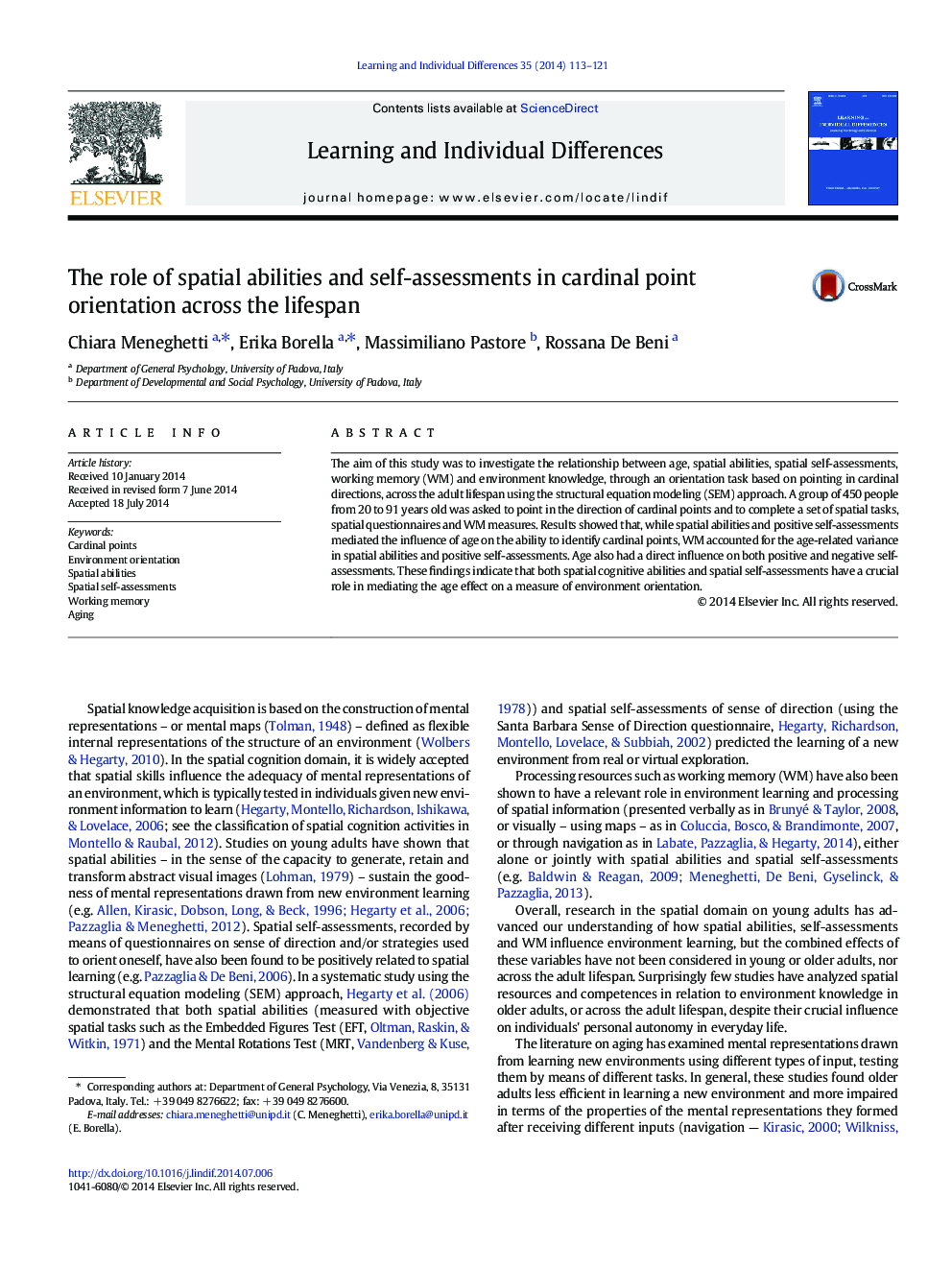| Article ID | Journal | Published Year | Pages | File Type |
|---|---|---|---|---|
| 6845072 | Learning and Individual Differences | 2014 | 9 Pages |
Abstract
The aim of this study was to investigate the relationship between age, spatial abilities, spatial self-assessments, working memory (WM) and environment knowledge, through an orientation task based on pointing in cardinal directions, across the adult lifespan using the structural equation modeling (SEM) approach. A group of 450 people from 20 to 91 years old was asked to point in the direction of cardinal points and to complete a set of spatial tasks, spatial questionnaires and WM measures. Results showed that, while spatial abilities and positive self-assessments mediated the influence of age on the ability to identify cardinal points, WM accounted for the age-related variance in spatial abilities and positive self-assessments. Age also had a direct influence on both positive and negative self-assessments. These findings indicate that both spatial cognitive abilities and spatial self-assessments have a crucial role in mediating the age effect on a measure of environment orientation.
Keywords
Related Topics
Social Sciences and Humanities
Psychology
Developmental and Educational Psychology
Authors
Chiara Meneghetti, Erika Borella, Massimiliano Pastore, Rossana De Beni,
